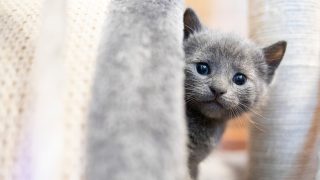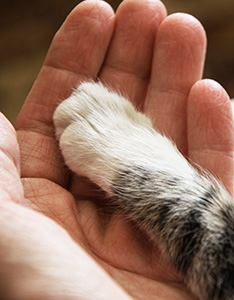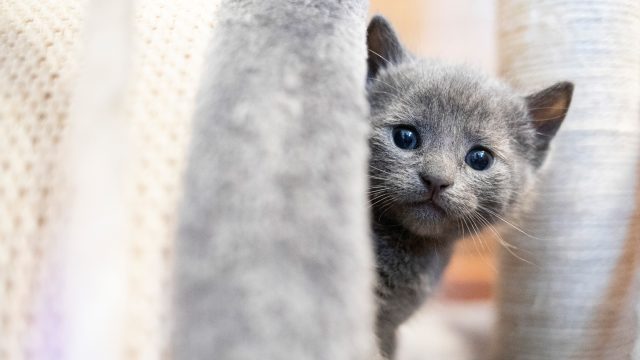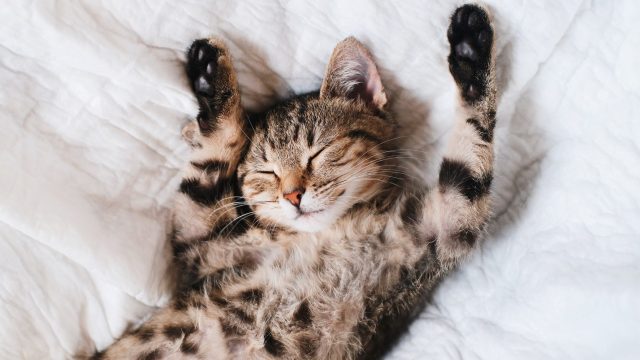
Veterinary Professionals: Urge Lawmakers to Ban Cat Declawing
This action is for veterinary professionals only.
Whether the patient is a human or an animal, a healthcare professional’s first duty is to do no harm. Following that ethic, numerous veterinary providers and practices in Illinois have chosen not to perform elective declaw surgeries on cats.

While a small percentage of declaw procedures are necessary for the health of the cat, the majority of these surgeries are elective, performed for the convenience of the cat’s guardian. But declawing can cause lifelong pain and discomfort for the cat, and often leads to more serious behavioral problems.
Currently, lawmakers nationwide are considering legislation that would ban elective cat declawing, while still permitting the procedure when necessary for a therapeutic purpose.
The voices of veterinary professionals are urgently needed! Enter your information below to sign the petition in support of this important humane reform.
Petition
We, the undersigned veterinarians and veterinary professionals, strongly support prohibiting the practice of feline declawing, including onychectomy and tendonectomy, except when medically necessary for therapeutic purposes.
Feline declawing is a major, invasive surgery that is commonly performed as an elective procedure for the convenience of the owner, not the medical benefit of the cat. Declawing can have serious negative effects on a cat’s physical health and behavior. The declawing surgery itself can leave cats at risk for anesthetic complications, hemorrhage, infection, and pain, while it can also result in chronic lifelong physical pain and disability. Declawing changes the way that cats walk, and over time, this imbalance can cause lameness, nerve damage, paw and leg pain, and back pain.
Declawing inhibits a cat’s normal means of movement and defense, and cats often compensate in ways that might be more detrimental than scratching. Studies have shown that declawed cats exhibit increased frequency and intensity of biting, which is more of a risk to human health than scratching. For instance, one study featured in the Journal of Feline Medicine and Surgery conducted physical examinations on 137 declawed cats and 137 cats who had not been declawed. The authors found that biting was four times more frequent in declawed cats and that declawed cats were three times as likely to show general aggression than their non-declawed counterparts.1 Declawing has also been associated with inappropriate marking and refusal to use the litter box.
Scratching is a normal and necessary feline behavior, and humane alternatives — such as nail caps, scratching posts, and regular nail trimming — are effective in helping to control it.
Numerous veterinarians and practices nationwide refuse to perform declaw procedures. In fact, the American Association of Feline Practitioners and the American Animal Hospital Association agree that declawing for non-therapeutic purposes should end, and several of the largest veterinary hospital systems in the country, including VCA, Banfield, and Blue Pearl, do not perform elective declaw procedures on cats.
It is time to protect cats from painful and unnecessary cat declawing procedures. We support this import humane reform.
———
1 Pain and adverse behavior in declawed cats, Martell-Moran, N., Solano, M., and Townsend, H., Journal of Feline Medicine and Surgery (May 23, 2017), https://journals.sagepub.com/doi/full/10.1177/1098612X17705044.
Focus Area
How We Work
Related
-
Resolution Opposing Elective Cat Declaw Surgeries Introduced in the U.S. House of Representatives
Declawing is a cruel surgical procedure to remove the last bone in a cat's toesDecember 16, 2025 Press Release -
California Governor Signs Animal Protection Bills into Law
The Animal Legal Defense Fund sponsored two bills protecting cats and wild animalsOctober 21, 2025 News -
ALDF Urges Justice for Cat Victims in Elkhart County
The county’s prosecutor dismissed criminal charges against the manufacturing plant employees who killed two feral cats in a trash compactorAugust 11, 2025 News



